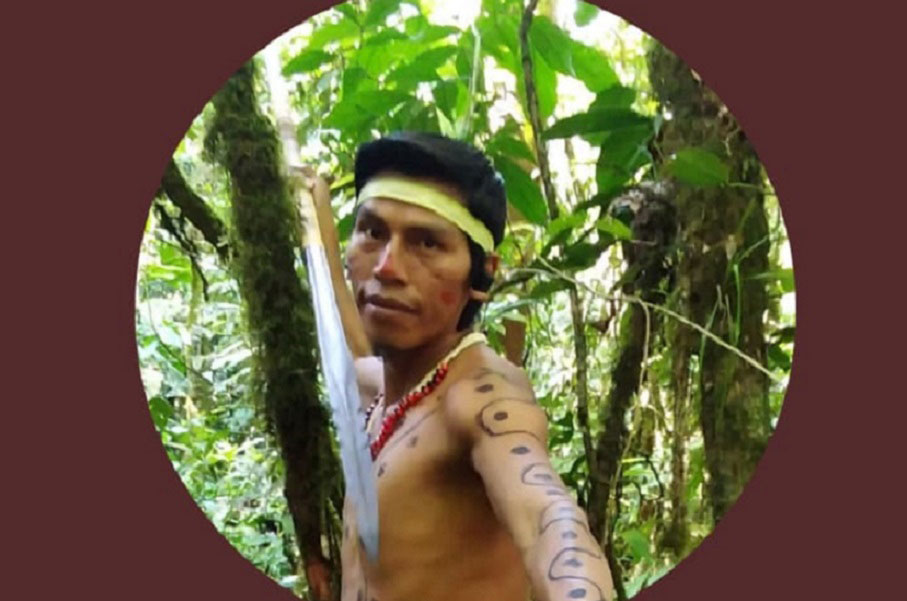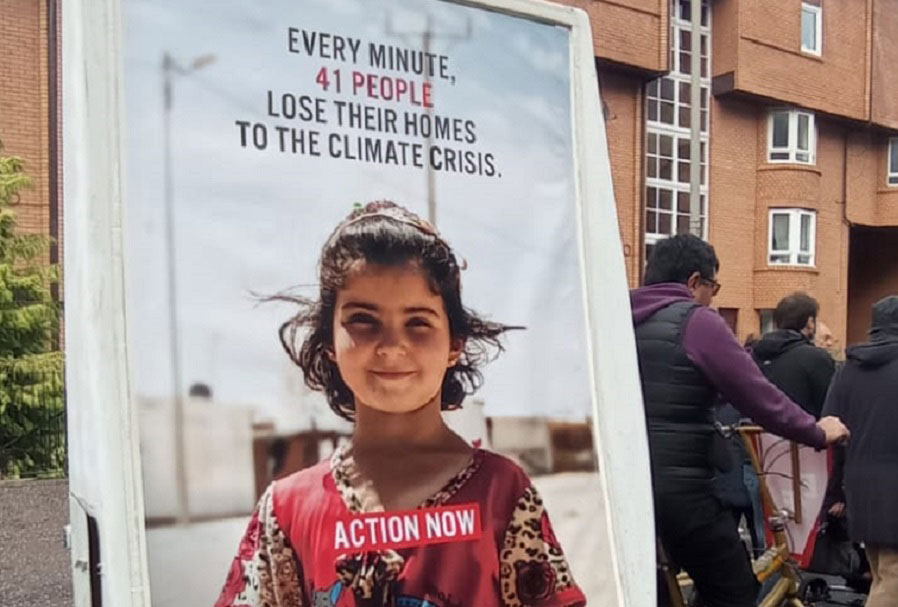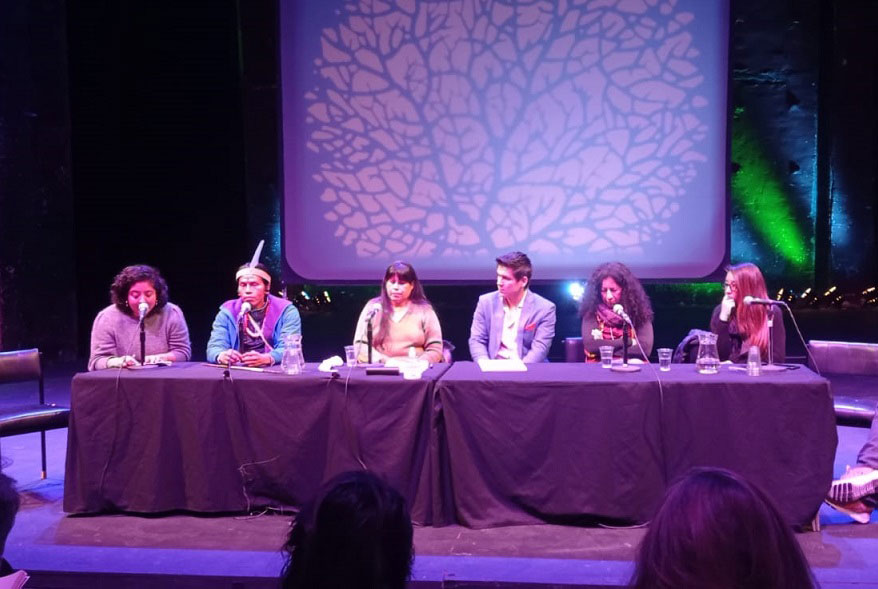Minga Indigena - the Indigienous Way of knowledge and balance with nature
All through the 2 weeks of COP26 there were hundreds of meetings and workshops and debates, many “in person” and many also online.
Our small CICD delegation attended some different debates and presentations. We started with Minga Indigena. There is a large gathering of Indiginious elders and activists from the Americas at COP26, and we went to an event about “False solutions to the climate crisis – the disguise of Net Zero and carbon markets” where 5 speakers and 2 translators shared their experiences with the public and answered questions.
It was 1 ½ hours of very serious, touching and heartfelt testimonials and discussions. The meeting was calm and peaceful, but very intense and full of energy.
The 5 speakers spoke to an almost full auditorium about the power of life, and about how the traditions and way to survive in balance with nature that indigenious peoples have developed during thousands of years are disregarded….. at our peril.
Their land and knowledge are trampled on and not respected, often even in the name of development and sustainability.
A Mexican woman gave a recent example, she spoke about how sustainable energy sources such as windmills and solar panels are established on indigeneous land in a way that completely overrides the lives and needs of the people living there. They had not been consulted on the project. Their need for electricity is very small, but still a huge complex is established on their land because of corporate interests….and then the price they end up having to pay for the electricity becomes so high that they cannot afford it.
The business interests and profit of private corporations are the priority and the opinions and needs of the indigeneous people are ignored. "Solutions" are imposed that in the end cause problems and harm. Carbon trading is trumpeted as one such solution - but that is a false solution if the biodiversity and forests are traded with on a carbon market and not saved!
A man from the Waorani people in Ecuador told about his people, that had only been in contact with “the rest of the world” since 1952. Only from 1980 they got the official “status” to their name. He gave an impassioned speech about the importance of not forgetting the old wisdom and losing the connection with nature, that his people had always survived with....and he told proudly about how they are now also using the internet, even in very remote areas, to access new learning and new ideas!
In Ecuador there are 3 million hectares of land that the indigeneous people are taking care of and protecting. They see themselves as the guardians of this land.
Ending deforestation by 2030 is not enough!
The pledge from the politicians at COP26 to end deforestation by 2030 does not take into account the situation of the many more areas that indigeneous people are taking care of. The destruction is allowed to continue.
Indigeneous peoples make up 6% of the worlds’ population but inhabit 85 % of the areas that are proposed for biodiversity conservation.
So clearly there should always be consultation and agreements with them regarding changes and projects on this land.
Litigation against big corporations
A Colombian barrister working in London explained about how litigation has won some big victories against big polluting companies – such as Shell in Netherlands recently - and she said it was very important that this continues.
There are countries where international law regarding the environment is not recognised, like in the UK. To profit from this situatlon, Dutch Shell has now after loosing the above mentioned courtcase, changed its name and are moving its HQ to London.
In other countries these international laws are recognised, but it’s not well known – such as many countries in Latin America. But she was hopeful about Chile. Here a new constitution is in the process of being written, and it will include protection of indigeneous people and the land.



